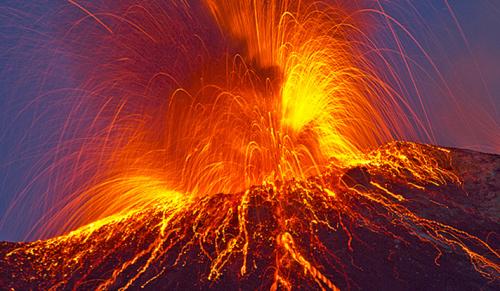
A geology-based analysis of Earth’s climate history over the past 700 million years provides evidence that climate change has occurred traditionally through slow shifts in the release of carbon dioxide — a stark contrast to today’s rapid release of carbon dioxide.
Scientists at Yale, the University of Texas-Austin, and Rice University created a global database of volcanic activity going back 720 million years, in order to study the ebb and flow of warm and cold climate that Earth has experienced. The findings appear in the April 22 edition of the journal Science.
The researchers found that for the majority of Earth’s history, continental arc volcanism — which occurs along subduction zones where oceanic crust plunges beneath a continent due to tectonic plate adjustments over millions of years — has been the main driver of long-term climate variability. Intervals of increased continental volcanic activity associated with the formation of continents and mountain ranges released carbon dioxide into the atmosphere and matched up with warmer “greenhouse” periods, said the researchers, while times of little or no volcanic activity matched colder, glacial periods.